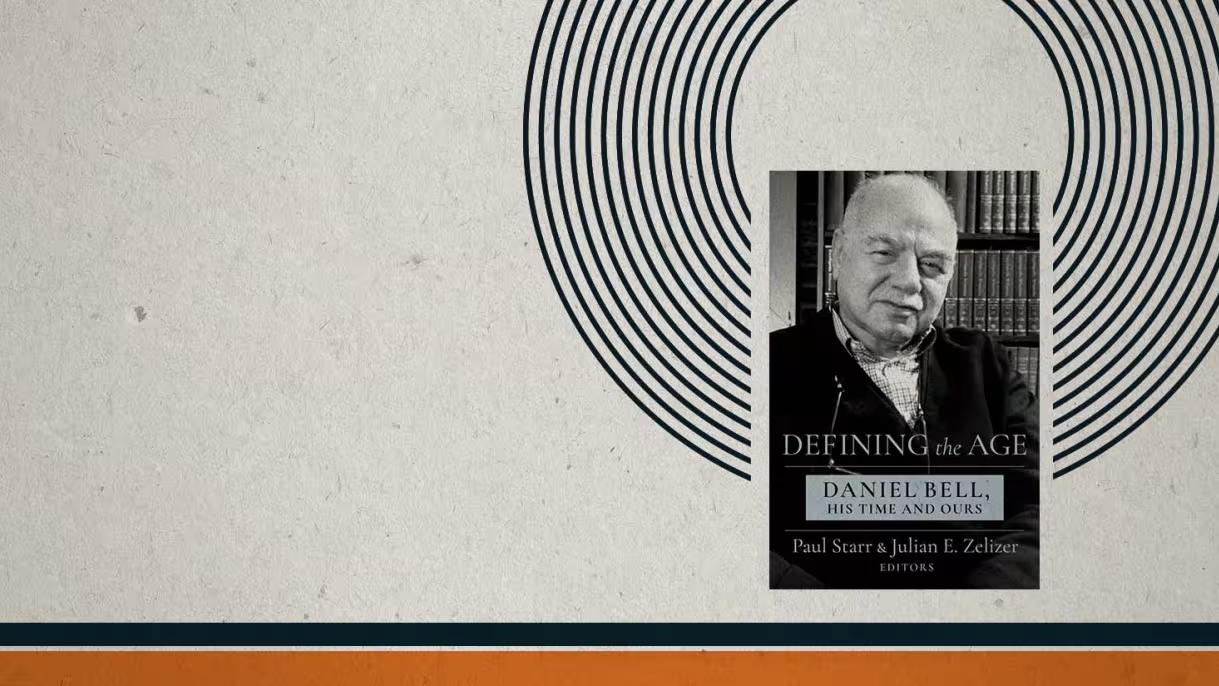

Q&A: Defining the Age: Daniel Bell
The sociologist Daniel Bell was described as one of the leading American intellectuals of the post-war era. He acutely defined the structural forces behind the transformation of the United States and other advanced societies in the 20th century.
Bell’s ideas continue to provide profound insights in today’s world. This is what led Paul Starr and Julian E. Zelizer, both based at the Princeton School of Public and International Affairs, to edit a collection of essays about his influence: “Defining the Age: Daniel Bell, His Time and Ours,” published in February 2022 by Columbia University Press.
The book brings together a group of distinguished contributors to consider how well Bell’s ideas captured their historical moment. While differing in their judgments, they agree on one thing: Bell’s ideas deserve the nuanced and serious attention that they receive in this book.
In the Q&A below, Starr and Zelizer answer questions about the book and why Bell’s intellectualism remains significant in today’s landscape.
Q: Briefly tell us more about Daniel Bell. Why did you decide to put together this collection of essays about his work?

Starr and Zelizer: Born in 1919, Bell was a major influence as both a social critic and a social theorist in mid-20th century America. He was a prominent public intellectual in an era of American history when there was a robust, serious discourse that flowed out of the academy and influenced the national conversation. Bell was the author of three books — "The End of Ideology,” “The Coming of Post-Industrial Society,” and “The Cultural Contradictions of Capitalism” — that became focal points of public debate and intellectual controversy. We wanted to bring some of the nation’s finest social scientists to examine his legacy.
Q: In what ways did Bell’s work and writing inform our thinking around subjects like socialism, the radical right, or the emerging postindustrial society?
Starr and Zelizer: Bell’s book on the history of socialism in the United States was the first serious study of the subject and remains a crucial point of reference. During the 1950s and 1960s, in the wake of “McCarthyism” — a campaign carried out under Sen. Joseph McCarthy against alleged communists in U.S. government — Bell and other members of his circle saw the “radical right” as the response of once-dominant Americans whose status and power were slipping away. And while he didn’t envision social media and certain other aspects of our contemporary world, his theory of postindustrial society anticipated many of the central changes that we’ve witnessed in the economy and social structure.
Q: Bell called himself a “a socialist in economics, a liberal in politics, and a conservative in culture.” What’s your reaction to this description?

Starr and Zelizer: That was a sly invitation to consider his ideas and his work more carefully than many people did, especially those who called him a “neoconservative,” a label he vehemently rejected. Bell’s ideas defied some of the conventional categories that have been used to frame main currents in intellectual history. He started out as a socialist — a social democrat, that is — and he retained a good deal of that outlook in his later work. By the late 1940s, his politics had turned toward liberalism, and he remained a liberal when some members of his circle in the late 1960s and 1970s moved to the right. But he opposed the cultural tendencies of that era, and, in that respect, he was a conservative, though not a conservative as that might be understood today. The tensions and contradictions in his thought make him a fascinating figure to understand.
Q: How were the essays chosen for this book? Seeing them together, what is the common theme?
Starr and Zelizer: We chose the title, “Defining the Age,” because Bell had a talent for singling out key developments that became emblematic of their era. That thread runs through the book. We sought out contributors who have a deep knowledge of the subjects he wrote about and could put his work in perspective. We were especially interested in scholars who could contextualize his classic work. They don’t all agree about the merit of those ideas; we weren’t looking for unanimity or consensus. But they take his work seriously, and in doing so, they provide us insight into Bell’s time and our own.

